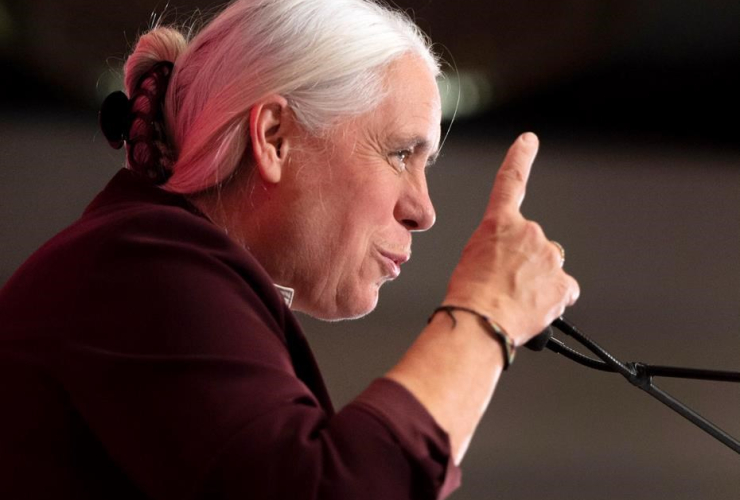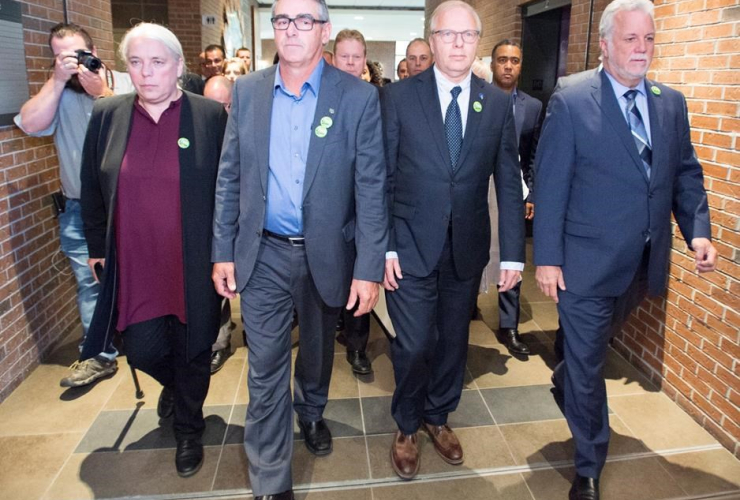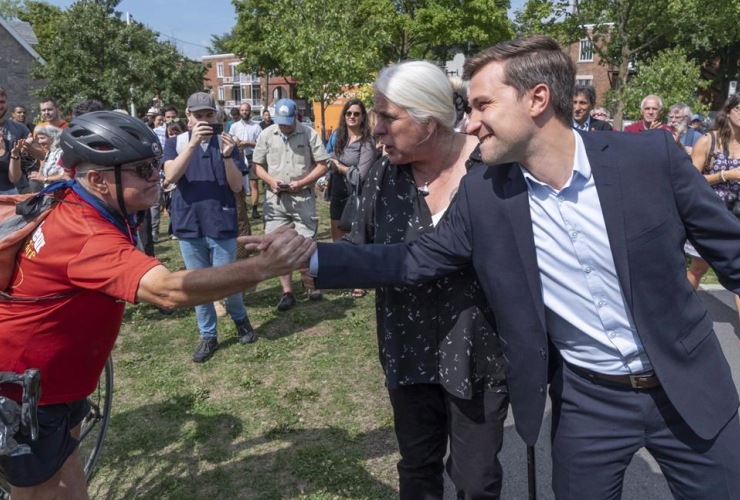Seven years ago, Manon Masse was aboard a flotilla of ships bound for the Gaza Strip in an attempt to break the Israeli-Egyptian blockade of the embattled territory.
She had joined activists from around the world determined to "denounce (Israeli) apartheid" and help a Palestinian people "forgotten by the international community," she recalled in a recent interview.
The flotilla never reached Gaza — it was blocked in Greece by local authorities — but the episode offers insight into the personal politics of a woman strikingly different from most would-be premiers.
As co-spokesperson for Quebec solidaire and a long-shot candidate to be premier, Masse is the voice of what is arguably the most radical, left-wing party with seats in a Canadian legislature. Yet Masse's team is polling in the mid-teens and has a strong chance of increasing its seat total of three and winning its first ridings outside Montreal.
Her party advocates raising personal and corporate taxes, eliminating gasoline-powered vehicles and providing free education from daycare to doctoral studies.
It offers a glimpse of where left-wing politics could be heading in the country, as a younger generation turns toward politicians they believe will take wealth inequality and climate change seriously.
Politicians in Canada are often accused of changing their policies to suit public opinion polls, but when Masse says she's a social justice activist and revolutionary, her background suggests she means it.
"The two big motivations that brought me into politics are inequality and justice," Masse said in an interview with The Canadian Press. "And when we talk about social justice, it's in our country but also, more largely, at the global level."
Her former Quebec solidaire colleague, Amir Khadir, who is not running in this election, said Masse comes from a community of activists who decided in the late 1990s and early 2000s that politics is the best way to transform society.
"Little by little, because of their implication in the community, they realized there was a political angle that was missing," said Khadir, who in 2008 became the first elected member of Quebec solidaire.
"Manon was part of that generation of community organizers."
Elected for the first time in 2014 by a margin of 91 votes, she has helped fuel a surge in support for her party, largely at the expense of the Parti Quebecois.
PQ Leader Jean-Francois Lisee has taken notice, targeting Masse in the final weeks before Monday's vote. He said her party is "rooted in Marxism" and accused her of "manipulating voters" by not coming clean about the party's plans to nationalize parts of the economy.
Quebec solidaire's program includes the partial or total nationalization of the province's mining, forestry and banking sectors.
Another sign that old-school sovereigntists are worried about Masse was Wednesday's attack by former Bloc Quebecois leader Gilles Duceppe, who said her party's platform "is not based in reality." He accused her of not being committed to Quebec independence and even criticized her spoken French.
Masse hasn't taken the bait, saying she is fighting for ordinary people and speaks their language.
"People thank me, sometimes with tears in their eyes ... for the way we are running our campaign," Masse recently told reporters at a campaign stop. "I will not embark in these games. The population hates these kinds of things."
Quebec solidaire is a sovereigntist party, but only as a way to make Quebec more socially just — free of what Masse calls the "petro-state known as Canada."
Masse is unafraid of calling herself a revolutionary and advocating for socialist policies that would "transform society." But she stands out for her looks as well as her ideas. She proudly wears a silver moustache, a feature that is played up in some of the party's election posters.
A mother of two and a lesbian, Masse described in her recent book being rejected by her mother because of her sexual orientation. That experience helped spark her desire to fight for equality, she said.
Masse predicts other provinces could soon see parties similar to Quebec solidaire.
"It's clear in the rest of Canada there are an enormous number of progressives," she said. "In the movement for people's rights, the union movement, the environmental movement ... people who want to ensure a better life for everyone.
"I think there is space for a Quebec solidaire outside Quebec."





Comments